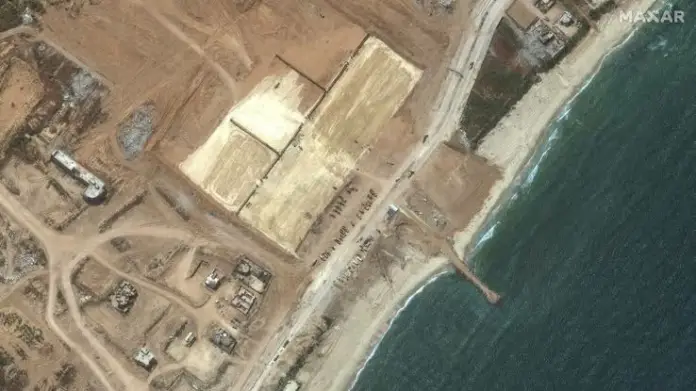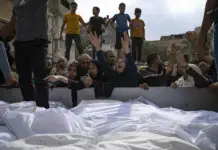U.S. military forces have commenced the construction of a maritime pier off the coast of Gaza, with the aim of expediting the flow of humanitarian aid into the region. This development, announced by President Joe Biden in March, comes amidst calls for improved access to relief supplies into Gaza, especially following Israel’s six-month-long military campaign against Hamas.
The pier, scheduled to become operational in May, is expected to facilitate the delivery of crucial aid to Gaza’s 2.3 million inhabitants, who have been severely impacted by the recent conflict. However, challenges remain as international officials warn of the looming risk of famine in northern Gaza.
Despite the aid already being inspected by Israel in Cyprus before shipment to Gaza, it will still need to pass through Israeli checkpoints on land. This precaution is aimed at preventing aid from reaching Hamas fighters and bolstering their military efforts, but it raises concerns about potential delays in aid distribution.
The construction effort involves U.S. military vessels, including the USNS Benavidez, constructing the initial stages of the temporary pier and causeway at sea. However, concerns about the safety of American troops were highlighted by a recent mortar attack near the pier’s designated area.
Upon completion, the pier is expected to handle up to 150 trucks daily, significantly increasing the capacity for aid delivery compared to current levels. The United Nations has been advocating for greater aid volume and direct access from Israel’s Ashdod port to the Erez crossing to address the humanitarian crisis in northern Gaza.
The Israeli military has pledged security and logistical support for the pier, with an Israeli brigade, navy ships, and air force working alongside U.S. troops to ensure safety during construction and operations.
While progress is being made to enhance humanitarian aid efforts in Gaza, challenges persist, underscoring the complex dynamics of aid delivery in conflict zones and the urgent need for sustained international cooperation to address humanitarian crises effectively.







